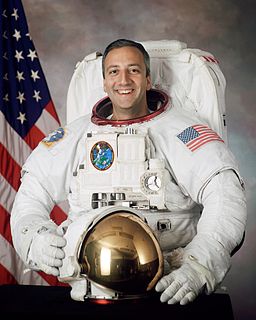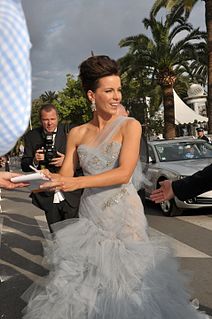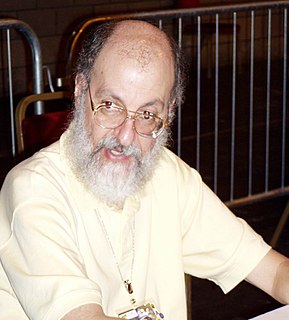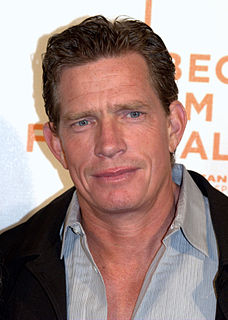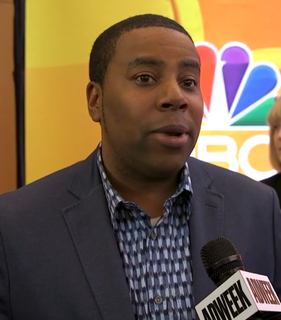A Quote by Michael J. Massimino
My odyssey to become an astronaut kind of started in grad school, and I was working, up at MIT, in space robotics-related work; human and robot working together.
Related Quotes
There has to be some more regulation. But our kids have this incredible buffet of they can work in genomics, they can work in pre-omics, or they can work in robotics, or they can work in this, or they can work in that. And within the next five years there will be entirely new industries that come out of nowhere that kids are working in that would have been inconceivable when they started college. Not when we started college.
I actually met one of my business partners [Neal Dodson] at the Governor's School summer program, so we've known each other since we were 15 and 16 years old, and we both ended up at Carnegie Mellon together. He started working for a producer out of school after a few years, and then we started the company together.
When I first started working, I was very aware of the fact that I'd been to university and studied Russian and French and not acting. So when I started working, I'd started working quite young, I felt like it was important to treat myself kind of like an apprentice and do as many different types of things as I could.
I had always been interested in the space program, and I didn't know if I could be an astronaut like I'd dreamt about when I was a little kid - to me it sounded kind of silly, someone grow up to be an astronaut - but, when I was in my 20s, I thought maybe I can get a job with NASA or a contractor, do something with the space program.
The Three Laws of Robotics: 1: A robot may not injure a human being or, through inaction, allow a human being to come to harm; 2: A robot must obey the orders given it by human beings except where such orders would conflict with the First Law; 3: A robot must protect its own existence as long as such protection does not conflict with the First or Second Law; The Zeroth Law: A robot may not harm humanity, or, by inaction, allow humanity to come to harm.
I've been working in theater, really, since about 1965. I started working with the Mabou Mines about then, and in a way I've always worked in the theater, but it's never been a main part of my work. And it wasn't until Einstein that I kind of shifted into high gear with theater, working with Bob, with Bob Wilson. And since then I find it a very attractive form to work in. It's just an extension of my work.
I went to school at MIT with a whole bunch of engineers. And then I started work one day and asked myself, 'Why do all of these MIT Ph.D.s work for Harvard M.B.A.s?' Why should it be like that? I was one of those engineers who thought, 'Why are these people making those dumb decisions?' So it's fun to be the person making them.
